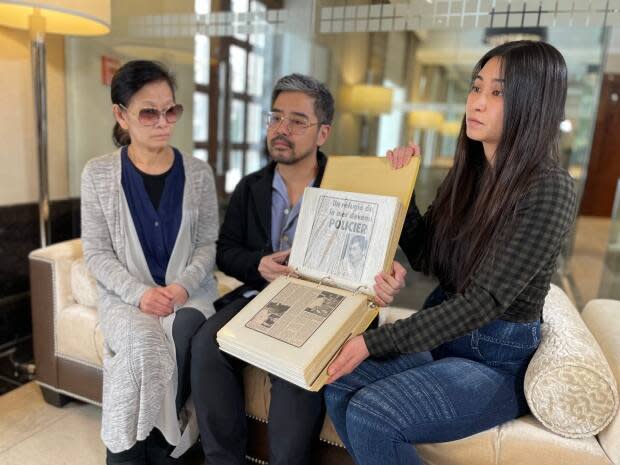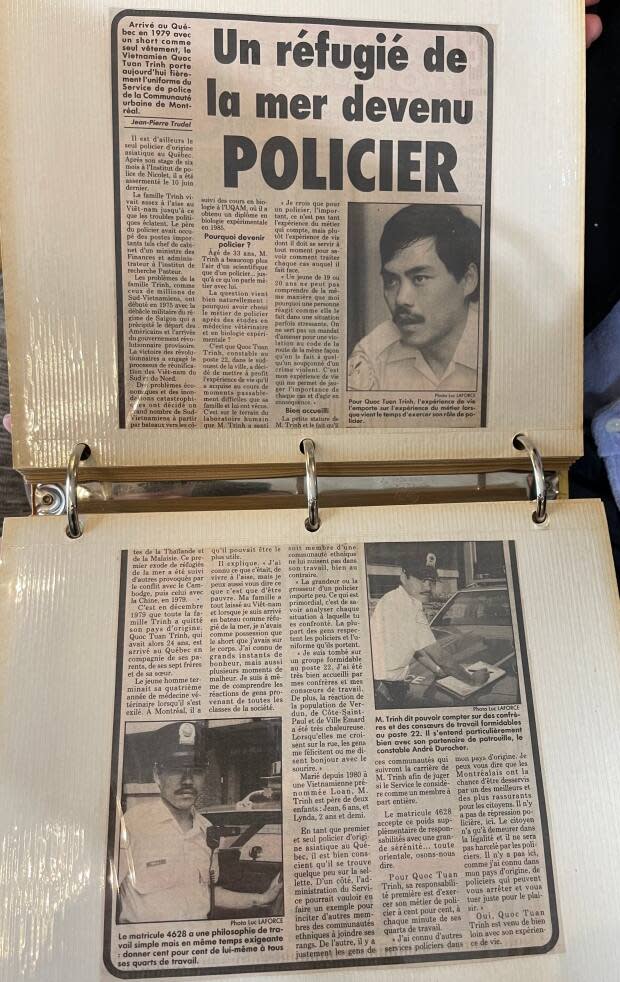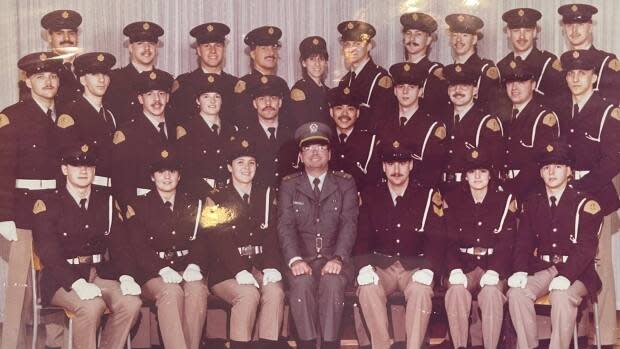Quebec's 1st Asian police officer remembered as pioneer, hero

Quoc Tuan Trinh, who broke the glass ceiling by becoming Quebec's first police officer of Asian descent more than three decades ago, has died at the age of 67.
Trinh, who was battling cancer and died last week, was remembered by his family as a pioneer in policing through his effort to build closer ties with diverse communities across the city.
He worked with the Montreal police force for 28 years.
When he was 33, Trinh joined the Montreal Urban Community Police Service (SPCUM) — the predecessor of the city's current police unit, known as the SPVM — in June 1988.
He made his debut in District 22, located in the Verdun borough.

Being the first Asian officer in the predominantly white, change-resistant police force was hard for Trinh, according to his son, who said he faced a lot of prejudice among his colleagues.
"I would say the first five years were the most difficult," said Jean Trinh.
"When you see someone who is very different, who has a different accent and who doesn't have the same thing in his lunch box, you often wonder: is he one of us or not?"
But as a Vietnamese "boat person" — one of the thousands of refugees who fled after the Vietnam War and survived the crossing of the South China Sea — Trinh had the determination to rise above the discrimination, his children said.
They say he passed that determination on to them.

"In 2012, I almost gave up on my doctorate because of a personal conflict with someone at the university," said his daughter, Linda Trinh.
"I remember [my dad] talking to me and looking me straight in the eye [and saying], 'You think I've never experienced injustice? Do you think that no one has ever put obstacles in my way to prevent me from finishing what I wanted to do? You're not going to give up because someone doesn't want you to succeed,'" she said through tears.
Despite the barriers, the police officers who worked with Trinh eventually accepted him into their ranks. They soon affectionately nicknamed him "Ti-Toine Tremblay," a French play on words involving his middle name, his children recalled with a smile.
Strengthening ties with diverse communities
Trinh also left his mark on the history of policing in Quebec by working to establish relationships with diverse populations in the city — something the Montreal police force had been attempting to do in the 80s.
"During his career, my husband was asked to speak to young people in schools and CEGEPs," said Trinh's wife, Le Thi Thanh Loan.
"My husband loved this role of building relationships with young people from diverse communities. It made him feel good."

A year before Trinh was hired, the SPCUM was severely criticized for the death of 19-year-old Anthony Griffin, a young Black man who was shot in the head by a Montreal police officer.
At the time of the November 1987 tragedy, local media had highlighted the fact that of the Montreal force's 4,200 officers, only three were Black.
The SPCUM was forced to recruit visible minorities to rebuild bridges with the city's diverse communities.

More than 30 years later, the ratio of visible minority police officers hasn't risen much, with the SPVM reporting in 2021 that only 8.7 per cent of its 4,523 officers were from such communities.
By sharing Trinh's story, his family hopes that future generations of police officers will be inspired by his determination to take their own careers as far as possible.
"It's clear to me that he is our hero," Jean Trinh said. "He knew how to do ordinary things, but in an extraordinary way."

